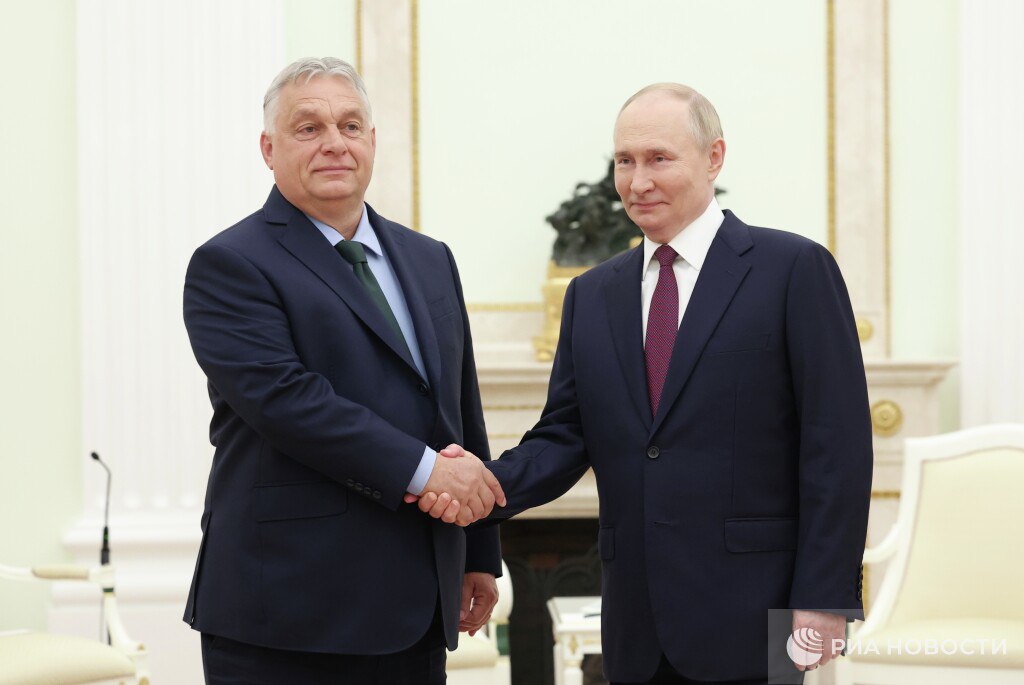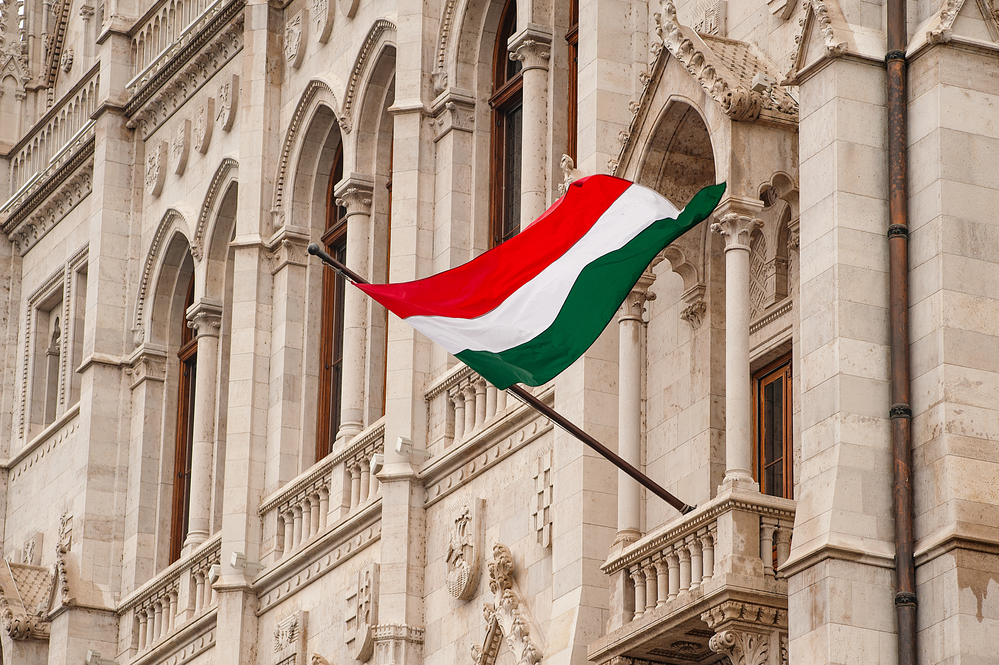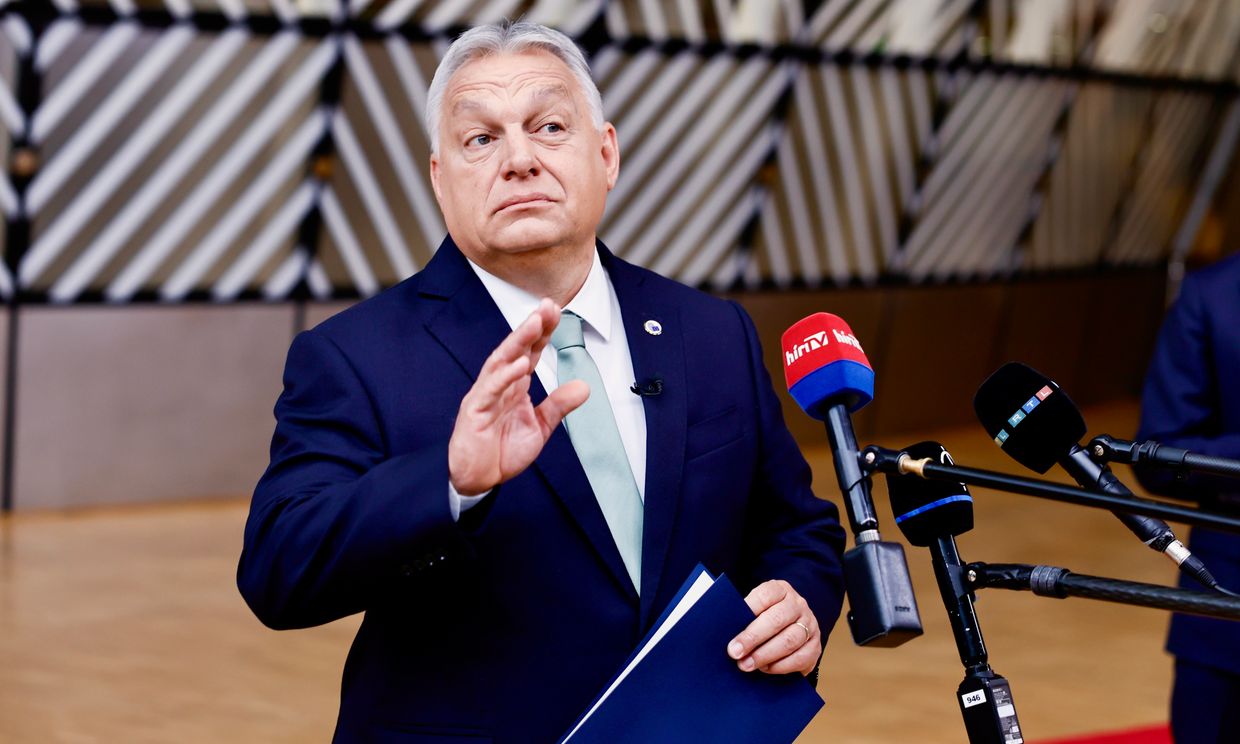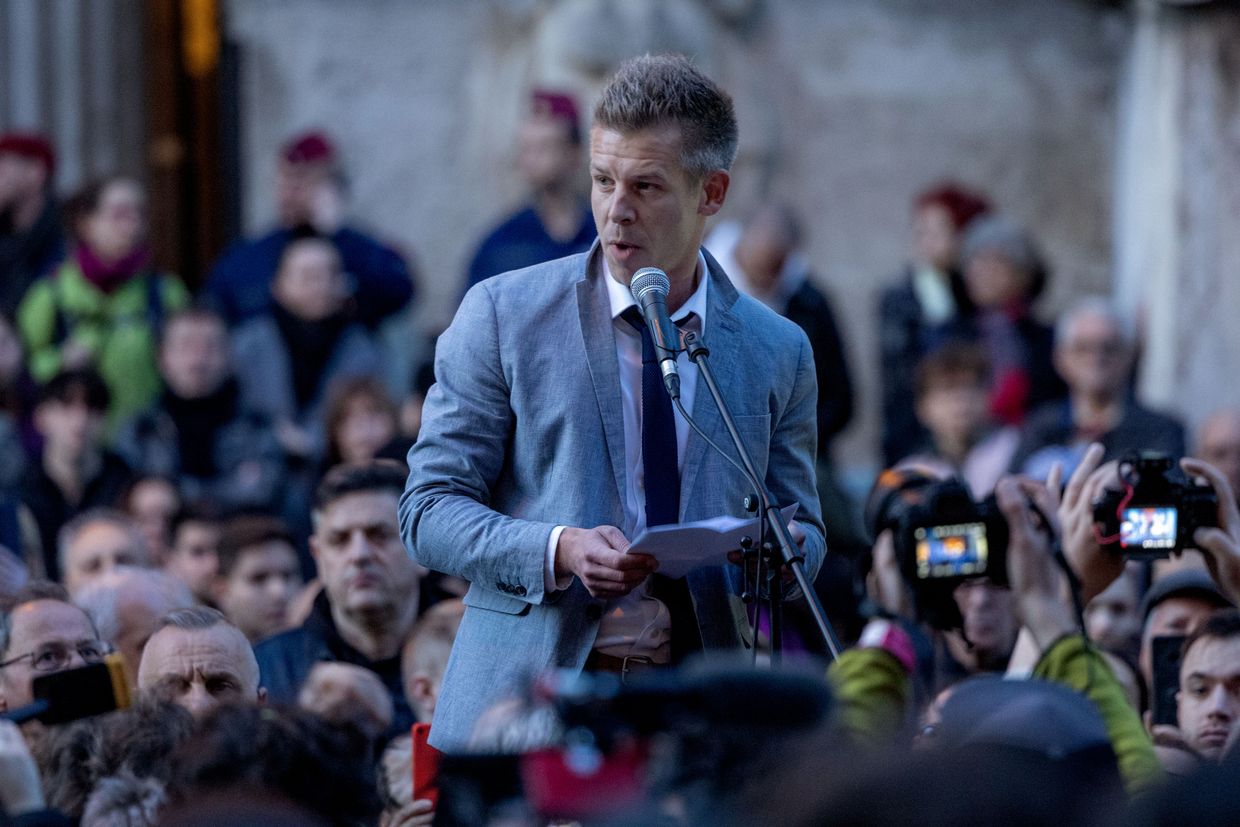Threatening Broadcasters, Trump Takes a Page From the World’s Autocrats

© Doug Mills/The New York Times


© Doug Mills/The New York Times


Hungarian Prime Minister Viktor Orbán has declared that the US allegedly acknowledged Russia as the victor in the ongoing war and that “Ukraine’s fate seems to be decided.”
“They [the US] have faced the fact that Russia has won the war. Without sending troops, Russia’s victory is inevitable, but troops are not being sent. Russia cannot be separated from China in the coming years,” Orbán said, Magyar Nemzet reports.

The Hungarian Prime Minister went further, predicting Ukraine will be carved into three zones following future security negotiations.
The territorial division Orbán envisions splits Ukraine into:
Orbán characterized Ukraine’s pre-war status as a buffer state with influence split equally between Russia and the West. He contends this arrangement has collapsed due to the war.
“Today, if you look at events and interpret them coldly, Ukraine is now being divided. Before the war, Ukraine had an important position, it existed as a buffer state: 50% belonged to the Russians, 50% to the West. As a result of the war, this collapsed,” he stated.
Then the Hungarian leader pointed to current European discussions about security guarantees as evidence this partition has already begun.
“Today Europeans elegantly talk about security guarantees, which in turn means the division of Ukraine,” he said, suggesting Western acknowledgment of Russian territorial control represents the first step toward formal partition.
The Hungarian leader also delivered a sweeping critique of European unity, describing the EU as being “in a state of decay” and suggesting the bloc’s 2028-2035 budget could be its last before eurozone collapse. He contrasted this with what he called Hungary’s successful economic model.
Despite predicting Ukraine’s dismemberment, Orbán insisted Hungary supports Ukrainian survival.
“We don’t want to push Ukraine into nowhere, we are not anti-Ukrainian,” he stated, explaining that a collapsing neighbor would harm Hungarian interests.
Orbán renewed his opposition to Ukrainian NATO and EU membership, advocating instead for a Moscow agreement requiring Ukraine to abandon Euro-Atlantic aspirations. He criticized the EU for behaving “like a lame duck during the war” and called for direct European negotiations with Russia rather than American-mediated talks.
Previously, Orbán declared that Russia has already secured victory with only the timing of Western acknowledgment remaining uncertain.


A secret document has exposed Hungary as the Kremlin’s “Trojan horse” inside the EU, say InformNapalm investigators. They have obtained a letter revealing the so-called “Ansat” project, a scheme discussed at the level of the Hungarian government with Russia’s state-owned Helicopters of Russia.
The plan was to use Hungary as a platform for legalizing and assembling Russian military equipment, which would then be exported under a “European” brand.
“While most EU countries stand with Ukraine and comply with sanctions, Budapest has become a gateway for Moscow to bypass restrictions and advance its military-industrial interests,” says InformPalm.
The document confirms that:
The evidence shows that even after sanctions were imposed, the Kremlin actively built channels inside the EU to circumvent them. Hungary turned out to be one of its links, willing to shield Russia’s defense projects.
“Every time Orbán blocks EU aid to Ukraine or vetoes NATO decisions, remember: this is not just politics but direct collusion with Russia’s defense industry,” InformNapalm stresses.
Earlier, Hungary banned a top Ukrainian drone unit commander from entering the country and the Schengen zone after strikes on the Druzhba oil pipeline.
Hungarian officials called the pipeline vital for their country’s as Hungary is still receiving Russian oil and financing Moscow’s war machine against Ukraine, despite the fourth year of Russia’s all-out war.
Hungary bans Ukrainian commander over Russian pipeline hit — latest sign of Budapest acting as Kremlin’s proxy in EU


Hungary's government announced on June 26 that 95% of participants in a national consultation opposed Ukraine's accession to the EU, Hungarian news outlet Telex reported.
The poll, promoted by Prime Minister Viktor Orban's government, has already drawn criticism over its credibility and turnout. Telex reported that the system could be manipulated — testing showed that users were able to vote twice using different email addresses.
According to Telex, 2,278,000 people participated in the consultation — approximately 29% of the electorate that voted in the 2024 European Parliament elections. Of those, the government claimed 95% voted against Ukraine joining the EU, while only 5% supported the bid.
Ukraine applied for EU membership shortly after Russia launched its war in 2022 and was granted candidate status within months. As an EU member, Hungary has veto power over further progress.
The consultation results were released on the eve of the European Council summit, giving Orban leverage to delay Ukraine's membership. But the process itself has drawn skepticism.
Government spokesman Gergely Gulyas claimed printed ballots were notarized and secure, and that electronic votes, which made up 10% of the total, were being verified. However, he could not confirm whether the system could detect if someone voted both by mail and online.
Opposition leader Peter Magyar on June 22 dismissed the consultation as a "government propaganda campaign" and cited internal data from Magyar Posta indicating that only 3-7% of mailed ballots were returned.
"It's the lowest-ever turnout for any such consultation," Magyar wrote on social media.
Since 2010, Orban's government has conducted more than a dozen similar national consultations — non-binding letter campaigns with leading questions designed to reinforce government positions.
Previous campaigns targeted topics like LGBTQ rights and EU migration policy. In one 2023 consultation, voters were asked whether they supported Brussels' alleged plans to create "migrant ghettos" in Hungary — 99% voted no, with turnout under 20%.
On April 22, Orban said he voted against Ukraine's accession to the EU in the consultation, publicly sharing photos of himself marking "against" on the poll ballot. He warned earlier this year that allowing Kyiv to join the EU would "destroy" Hungary.
Orban, the EU's most openly pro-Russian leader, has blocked or delayed military aid to Ukraine, maintained close ties with President Vladimir Putin, and echoed Kremlin talking points.
Hungary's opposition and Western critics view his administration as increasingly authoritarian, citing the erosion of press freedom, judicial independence, and electoral fairness.
Despite the low turnout and widespread allegations of manipulation, Orban is expected to use the consultation's outcome to justify future obstruction of Ukraine's EU integration.
 The Kyiv IndependentMartin Fornusek
The Kyiv IndependentMartin Fornusek


Hungary's national consultation on Ukraine's accession to the EU had the lowest ever turnout at such a poll, Hungarian opposition leader Peter Magyar said on June 21.
"The... government propaganda campaign is a total failure. Based on information we received from multiple sources within Magyar Posta (Hungarian Post), only 3-7% of the sent 'ballots' were returned," Magyar said in a post to social media.
The poll was announced by Hungarian Prime Minister Viktor Orban in early March and officially launched on April 19 with ballot papers sent to Hungarian citizens. Many ballot papers explicitly encouraged voters to reject Ukraine’s EU bid.
Orban, on April 22, said he voted against Ukraine's accession to the EU in the national consultation, publicly sharing photos of himself marking "against" on the poll ballot.
"This means that realistically, a maximum of 500,000 people may have 'voted' on paper... the Prime Minister’s Office revealed... that the number of online submissions was negligible compared to the paper-based ones," Magyar said.
"This aligns with information received from government sources — indicating that despite the propaganda lies, the total number of 'voters' could be at most 600,000," he added.
Despite the government's resistance, polling shows public support for Ukraine's accession to the bloc. According to Magyar's opposition party, Tisza's "Voice of the Nation" initiative, which received over 1.1 million responses, 58.18% of participants supported Ukraine's EU bid.
Magyar claims that the national poll garnered around 600,000 responses would mean that the opposition party's own polling received more responses than the government poll.
"This is the lowest number in the 'glorious' history of (national consultations). And this was only achieved over several months, with total mobilization and the burning of tens of billions in public funds. A total failure," Magyar said.
Hungarian officials have repeatedly threatened to undermine Ukraine's EU candidacy and EU support for Ukraine. Hungary has repeatedly blocked or delayed EU aid packages for Kyiv.
"(T)he failed, corrupt regime doesn’t care about people's real problems, and doesn’t dare to look people in the eye. They only send them letters," Magyar said.
Comrades, be proud of lying about two million pen pals, funded by 10 billion forints ($29 million) in state propaganda," he added, addressing Hungary's ruling government.
European officials have denounced Hungary for aligning with Russia. European officials, including Estonian Foreign Minister Margus Tsahkna, have suggested stripping Hungary of its voting power within the bloc.
Hungary maintains positive relations with Russia in contrast with other EU members. On March 26, Hungarian Foreign Minister Peter Szijjarto visited Moscow to discuss continued economic cooperation between the two countries.
 The Kyiv IndependentChad Small
The Kyiv IndependentChad Small